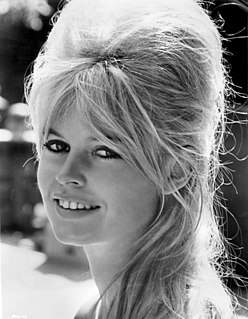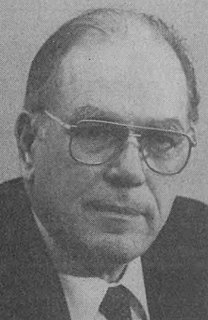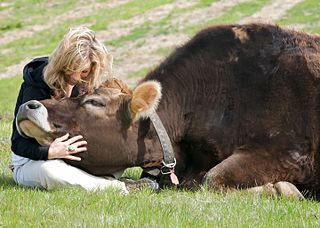A Quote by Temple Grandin
Related Quotes
Doctors are human animals. They want to be loved, they are tribal, they instinctually favor stories over scientific evidence, they make mistakes, and even small gifts make them susceptible to being biased. If we took doctors seriously as human animals, we might hurt them - and they might hurt us - a lot less.
It has been an obsession of human beings to create a hierarchy that places the human species on top and lumps all the "other animals" together beneath us. The resulting "speciesism" allows us to look upon animals as less deserving of all manner of rights and considerations than humans. To support this lower status, humans have argued that animals act instinctually; don't have souls; don't feel physical pain like we do; and lack self-consciousness, cognitive intelligence, emotional feelings, morality, and ethics.
Humans — who enslave, castrate, experiment on, and fillet other animals — have had an understandable penchant for pretending animals do not feel pain. A sharp distinction between humans and 'animals' is essential if we are to bend them to our will, make them work for us, wear them, eat them — without any disquieting tinges of guilt or regret. It is unseemly of us, who often behave so unfeelingly toward other animals, to contend that only humans can suffer. The behavior of other animals renders such pretensions specious. They are just too much like us.
Human cruelty knows no limits and that one needs immense courage and a will of iron to help others understand that animals are made of flesh and blood like us, that they suffer the same pains as us, that they deserve the same respect as us and that their continuous slaughter should not be part of human entertainment.
The ruling British elite are like animals--not only in their morality, but in their outlook on knowledge. They are clever animals, who are masters of the wicked nature of their own species, and recognize ferally the distinctions of the hated human species. Nonetheless, obsessively dedicated to being such animals, they can not [sic] assimilate those qualities unique to true human beings.
It has been well said that the food one consumes determines one's thoughts. By eating the flesh of various animals, the qualities of these animals are imbibed. How sinful is it to feed on animals, which are sustained by the same five elements as human beings! This leads to demonic tendencies, besides committing the sin of inflicting cruelty on animals.
We’re built to deal with death, disease, failure, struggle, heartbreak, problems. It’s what separates us from the animals and why we envy and love animals so much. We’re aware of it all and have to process it. The way we each handle being human is where all the good stories, jokes, art, wisdom, revelations, and bullshit come from.
A wealth of knowledge is openly accessible in nature. Our ancestors knew this and embraced the natural cures found in the bosoms of the earth. Their classroom was nature. They studied the lessons to be learned from animals, knowing that much of human behavior can be explained by watching the wild beasts around us. Animals are constantly teaching us things about ourselves and the way of the universe, but most people are too blind to watch and listen.
It is not how we breed, keep and kill animals for human consumption that has been the impetus for vegetarianism for thousands of years. It is that we breed, keep and kill animals for human consumption. Throughout the centuries the common thread in the arguments against eating animals is the fact that since we have no nutritional requirement for the flesh or fluids of animals, killing them to simply satisfy our taste-buds or habits or customs amounts to senseless slaughter, and senseless slaughter is no small thing.





































